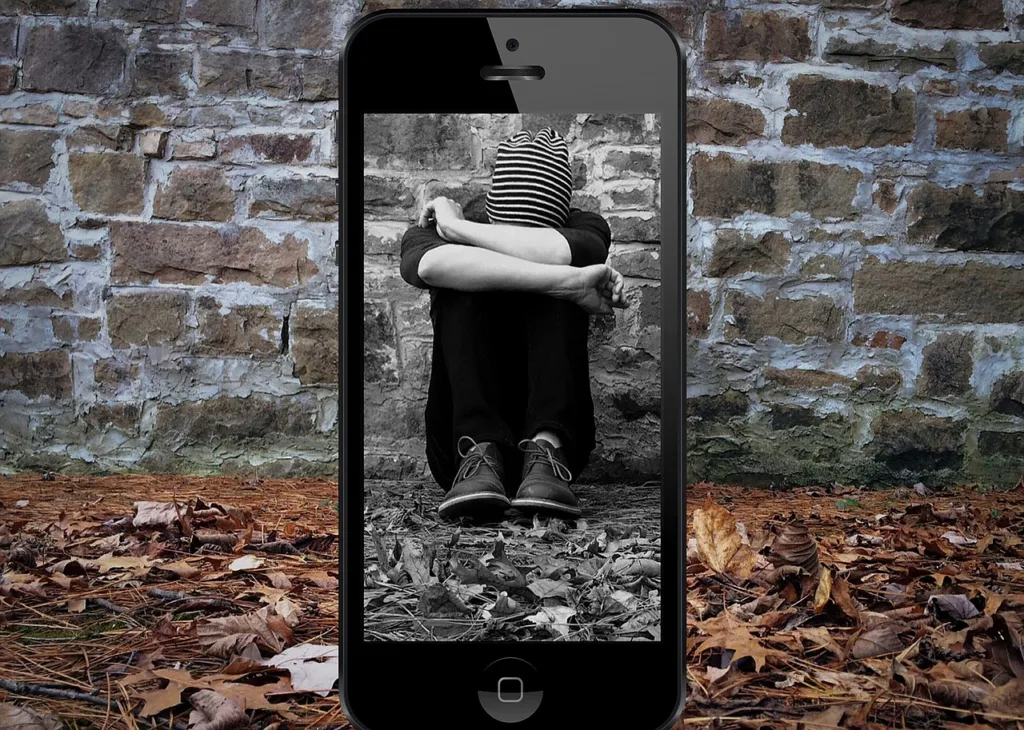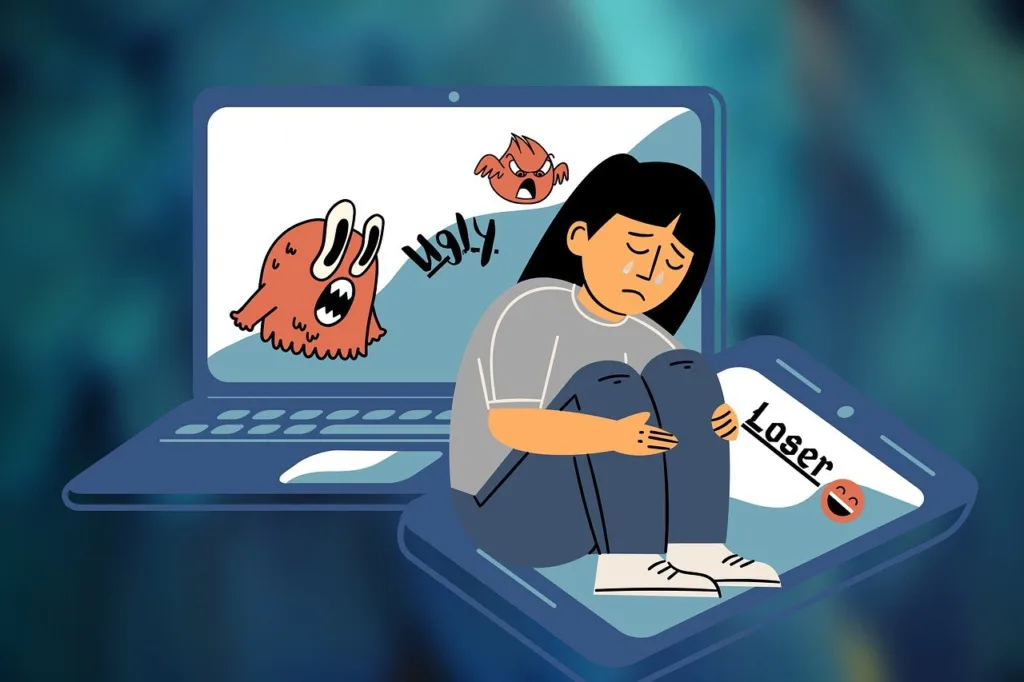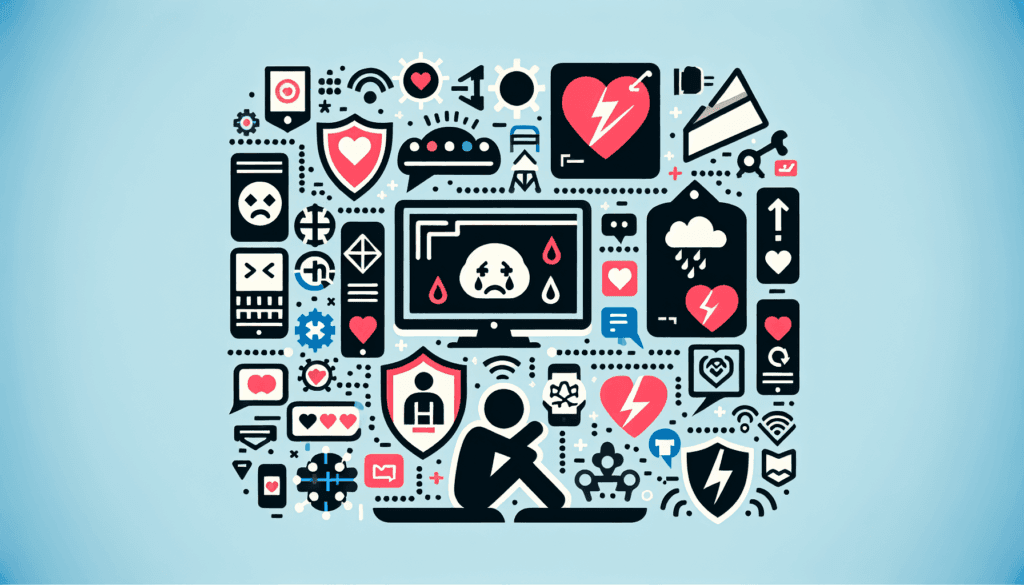What Are The Mental Health Implications Of Cyberbullying? The digital era brings with it a vast array of opportunities, but it also presents its share of challenges. Among these, cyberbullying stands out as a growing concern, particularly due to its profound impact on mental health. The adverse implications of this modern form of bullying extend beyond the initial emotional distress, leading to long-term mental health issues like anxiety, depression, and in some cases, self-harm or suicide.
The rise in cyberbullying and its severe implications necessitate a thorough, well-informed conversation, placing this topic on the forefront of mental health discussions. As you delve deep into this article, you will gain insight into the history, current trends, diverse perspectives, and future implications of cyberbullying on mental health. Brace yourself for an exploration of a relatively undiscussed yet vastly crucial topic in today’s digital world.
Table of Contents
Understanding Cyberbullying
Definition of Cyberbullying
Cyberbullying describes a form of harassment using electronic devices and platforms, such as email, social media, texts, and websites. Examples include spreading false rumors, posting embarrassing photos of someone else without their permission, and sending hateful messages.
Different forms of Cyberbullying
The different forms of cyberbullying can be split into four main categories: personal intimidation, impersonation, personal humiliation, and false reporting. Personal intimidation encompasses actions aimed to instill fear or unease, like sending threats. Impersonation entails creating fake profiles or websites to spread false information or act maliciously. Personal humiliation involves spreading personal or embarrassing information about someone else. Lastly, false reporting includes falsely reporting someone’s online activities to get them banned or suspended.
Targets and perpetrators of Cyberbullying
The targets and perpetrators of cyberbullying come from a myriad of backgrounds, covering all age groups, races, and socio-economic classes. However, young people, particularly teenagers, are more susceptible to becoming targets. More often than not, the perpetrators know their targets personally.
Historical Context and evolution of Cyberbullying
Historical perspective of Cyberbullying
Cyberbullying rose to prominence with the advent of the internet and the digital age. As technology evolved, so did the forms of bullying. While traditional forms of bullying involved physical and verbal abuse, cyberbulling opened up a new virtual platform for harassment.
How Cyberbullying has evolved over time
Cyberbullying has evolved with changes in technology. It began with emails and chat rooms and has spread to social media platforms, video games, and other digital platforms. As new technologies continue to emerge, so do novel forms of cyberbullying.
Influence of internet penetration and social media on Cyberbullying
The rise in internet use and the proliferation of social media platforms have increased the prevalence of cyberbullying. These platforms offer anonymity and a far-reaching audience, making it easier for perpetrators to engage in cyberbullying.

This image is property of pixabay.com.
Current Trends in Cyberbullying
Current statistics on Cyberbullying
Reports show that about 20% of children aged between 10 and 18 have been victims of cyberbullying. This statistic is alarming and indicates the pervasiveness of the issue.
Regions and demographics with high Cyberbullying incidence
While cyberbullying is a global issue, some areas are more affected than others. Reports show that it is more prevalent in developed countries. Among demographics, teenagers are the most targeted, with a higher prevalence among girls than boys.
Cyberbullying on different social media platforms
Cyberbullying occurs across a variety of social media platforms. The most commonly reported platforms include Facebook, Instagram, Snapchat, and Twitter. Each platform presents unique features that cyberbullies may exploit.
Link between Cyberbullying and Mental Health
Overview of the relationship between Cyberbullying and Mental Health
Cyberbullying has a profound impact on mental health. The victims often feel powerless, embarrassed, and fearful. Over time, these emotions can contribute to depression, anxiety, and other mental health issues.
Studies supporting the link between Cyberbullying and Mental Health
Numerous studies have validated the link between cyberbullying and mental health issues. For instance, victims of cyberbullying are more at a higher risk for symptoms of depression and anxiety.
Effects of Cyberbullying on the target’s mental health
Apart from depression and anxiety, victims of cyberbullying report feelings of loneliness, lower self-esteem, and higher stress levels. In severe cases, victims might resort to self-harm or contemplate suicide.

This image is property of pixabay.com.
Specific Mental Health Implications of Cyberbullying
Depression and Cyberbullying
Victims of cyberbullying are at a significantly higher risk for depressive symptoms. Cyberbullying can foster feelings of worthlessness and hopelessness that feed depression.
Anxiety and Cyberbullying
Exposure to cyberbullying can lead to chronic anxiety. Victims are in constant fear of repeated bullying and the potential social humiliation that may come with it.
Suicidal ideations/ suicide and Cyberbullying
Studies have shown that victims of cyberbullying are more likely to entertain suicidal thoughts. In some cases, individuals subjected to severe and prolonged cyberbullying have committed suicide.
Post Traumatic Stress Disorder and Cyberbullying
Post Traumatic Stress Disorder (PTSD) is a severe anxiety disorder that can develop after exposure to any event that results in psychological trauma. In the context of cyberbullying, victims may experience symptoms akin to PTSD, such as flashbacks, nightmares, and severe anxiety.
Case Studies on Cyberbullying and Mental Health
Case study 1: Cyberbullying leading to severe depression
In one study, a 14-year-old girl reported being bullied online for several months, leading her to develop severe depression. She expressed feeling worthless, hopeless, and expressed thoughts of suicide.
Case study 2: Connection between Cyberbullying and increased suicide rates among teenagers
Several studies have highlighted the connection between cyberbullying and suicide rates among teenagers. In a critical case, a teenager committed suicide after a prolonged period of online harassment, highlighting the severity of the impact of cyberbullying on mental health.
Analysis of relevant case studies
These case studies underscore the serious implications of cyberbullying. They stress the need for intervention strategies to address this problem effectively.

This image is property of pixabay.com.
Different Perspectives on Cyberbullying
Social perspective on Cyberbullying
From a societal perspective, the effects of cyberbullying can be far-reaching. Victims may isolate themselves, and the fear of being cyberbullied can deter individuals from fully participating in social activities, both online and offline.
Psychological perspective on Cyberbullying
From a psychological perspective, cyberbullying can inflict serious harm on a victim’s mental health. Experiencing cyberbullying can stimulate stress responses, including increased heart rate, cortisol levels, and feelings of fear or anxiety.
Educational perspective on Cyberbullying
From an educational perspective, cyberbullying can negatively impact a student’s academic performance. Bullied students may be less engaged in school activities and have lower academic achievements as a consequence of their deteriorating mental well-being.
Impact of Cyberbullying and Mental Health
Evaluating the impact of Cyberbullying on individuals’ mental health
The impact of cyberbullying on an individual’s mental health can be profound. It can lead to a range of psychological issues such as depression, anxiety, low self-esteem, and in severe cases, suicidal feelings.
Roles of schools, parents, and society in coping with the impact and repercussions of Cyberbullying
Schools, parents, and society have crucial roles in combating cyberbullying. Schools can enforce anti-bullying policies and provide a safe environment for students. Parents can monitor their child’s online activities, and society can raise awareness about the consequences of cyberbullying.
Government regulators and policies battling Cyberbullying and its effects
Government regulators and policies play a critical role in battling cyberbullying. Regulations such as anti-bullying laws can help deter potential perpetrators. Policies can also provide support for victims and programs aimed at educating the public about the effects of cyberbullying.

Mitigating the Mental Health Implications of Cyberbullying
Role of education in combating Cyberbullying
Education plays a crucial role in combating cyberbullying. It can teach students about the impacts of their actions, promote empathy, and encourage reporting incidents of cyberbullying.
Mental health support for victims of Cyberbullying
Mental health support is vital for victims of cyberbullying. This support can come from various sources, including psychologists, counseling, support groups, and compassionate friends and family.
Strategies for prevention and management of Cyberbullying
Prevention and management strategies include setting clear expectations for online behavior, monitoring online activities, fostering open communication about internet experiences, and providing mental health support when needed.
Conclusion: From Cyberbullying to Mental Health Implications
Recap of how Cyberbullying influences Mental Health
Cyberbullying has a strong influence on mental health, leading to depression, anxiety, low self-esteem, and in extreme cases, suicidal thoughts. The reach of this issue is vast, affecting individuals worldwide and across all demographics.
Reiteration of strategies to mitigate both Cyberbullying and its mental health implications
In mitigating the impacts of cyberbullying, strategies encompass regulations, education, and mental health support. Everyone, from parents, schools, and society, has a role in combating this issue and supporting those affected.
In conclusion, the relationship between cyberbullying and mental health is undeniable. Understanding its consequences is crucial for implementing effective methods to combat this issue and support victims. This understanding is critical in building a safer and more supportive digital world for everyone.

Related site – Effects of Cyberbullying

